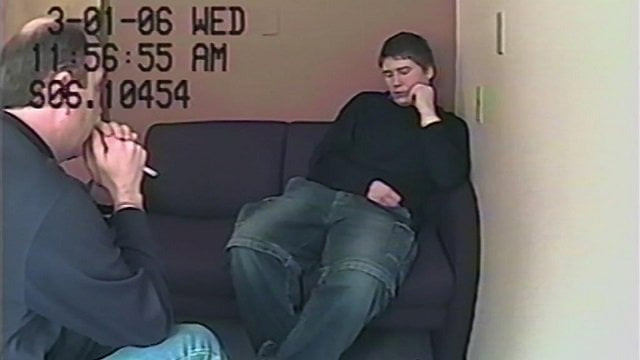US Supreme Court not to hear appeal in 'Making a Murderer' case
Brendan Dassey, now believed to be innocent by millions of Americans, is to stay behind bars for life for murder

Picture shows a scene from the popular documentary series "Making a Murderer" where Brendan Dassey, an adolescent, is interviewed on camera by a police investigator in regards to In this file video grab image dated March 1, 2006.The murder of 25-year-old Teresa Halbach for which Dassey and his uncle Steven Avery were sentenced in 2007 to life in prison. PHOTO: AFP
The top court declined to hear the case without stating its reasons a decision that means Brendan Dassey, now believed to be innocent by millions of Americans, will remain behind bars for life for murder.
Dassey was convicted in 2007 of helping his uncle Steven Avery kill a 25-year-old photographer, Teresa Halbach, in rural Wisconsin.
The case was made into a 2015 Netflix documentary series that gripped millions of Americans and raised concerns about the conviction of Dassey, who was only 16 at the time of the killing.
US detention of Pakistani at Guantanamo Bay has no legal basis, says UN body
The prosecution's case against Dassey rested entirely on a highly controversial police interrogation of the adolescent a young man of limited intellect and on his eventual confession.
As cameras rolled, Dassey was questioned for hours, with no lawyer present, by investigators who used questionable tactics to persuade the young man to provide incriminating testimony against himself and his uncle.
Opinions are divided on the guilt of Avery, the story's central character who was condemned to life in prison in 2007 for murdering Halbach, whose charred remains were found on the family's land.
Dassey's lawyer Jerome Buting said the Supreme Court had "passed on a huge opportunity to improve justice, especially for juveniles."
It is, however, rare for the court to take up a case involving an isolated instance of presumed judicial error.
More than 60 prosecutors, in a "friend of the court" filing, had urged the justices to take up the case and help "restore the public's confidence in the justice system."
They noted that "Making a Murderer," viewed by millions of Americans, had prompted "a public outcry over the obvious failure of the system."
Iran grants ailing US citizen four-day release from prison
In 2016, a federal judge in Chicago overturned the conviction of Dassey, who is now 28. A three-judge panel later upheld that ruling, finding that the young man's confession had been coerced.
But last December, the 7th US Circuit Court of Appeals sided with the state of Wisconsin, which has argued forcibly against Dassey's liberation, calling him a "serious threat to public safety."
A dissenting judge called that court's 4-to-3 ruling "a profound miscarriage of justice."



















COMMENTS
Comments are moderated and generally will be posted if they are on-topic and not abusive.
For more information, please see our Comments FAQ